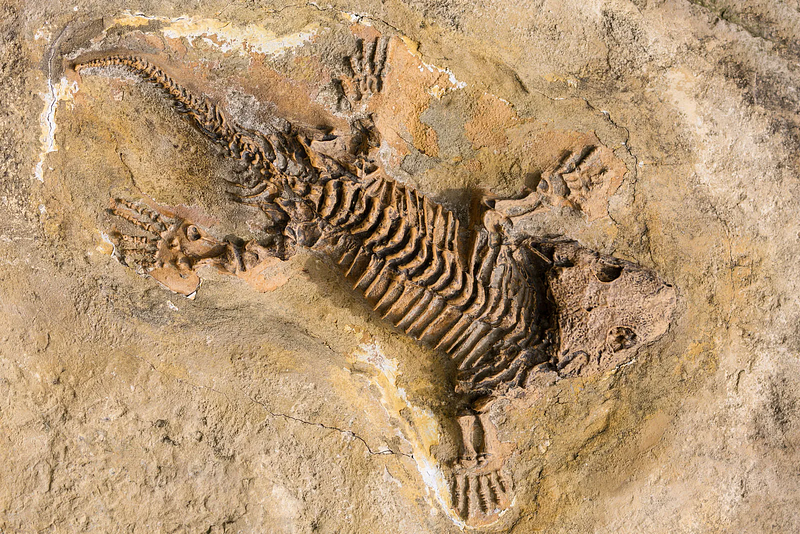The Foundation of Evolutionary Theory: A Scientific Perspective
Written on
Chapter 1: Understanding Scientific Theories
In the realm of scientific inquiry, it is crucial to acknowledge that theories are not "proven" in a conventional sense. Rather, they are validated by a multitude of evidence, and their acceptance hinges on the quality and quantity of this evidence. Among the myriad of scientific concepts that have enriched our understanding of the universe, the theory of evolution is one of the most thoroughly supported. This essay examines the notion that evolution, intricately woven into the fabric of contemporary biology, is underpinned by extensive scientific research, making it a foundational and well-supported idea.
The nature of scientific theories is essential to grasp before we delve deeper into evolution. In scientific discourse, theories are not simply guesses or untested notions; they are comprehensive frameworks that explain natural phenomena and are bolstered by substantial empirical data, subjected to rigorous testing and observation. Furthermore, these theories are adaptable, subject to modification or rejection as new evidence emerges. They form the structural basis of our comprehension of the natural world.
Section 1.1: The Evolutionary Theory Explained
The theory of evolution, introduced by Charles Darwin in the 19th century, is a foundational element of scientific understanding. It asserts that organisms undergo changes over time through natural selection, where individuals with beneficial traits have better survival and reproductive success. Moreover, it posits that all living beings share a common ancestor. While the central tenets of evolution have remained consistent, advancements in genetics, paleontology, and other scientific fields have refined and expanded our understanding of this theory.
Subsection 1.1.1: Evidence Supporting Evolution

The strength of the evolutionary theory is evident in the substantial evidence that supports it, spanning various scientific domains such as paleontology, comparative anatomy, molecular biology, and biogeography.
- Fossil Record: The fossil record presents a compelling narrative of life's history on Earth, showcasing the gradual evolution of organisms over millions of years. Transitional fossils serve as critical links, illustrating the evolutionary changes between species.
- Comparative Anatomy: The field of comparative anatomy uncovers remarkable similarities in the structures and functions of different organisms, even among those that are distantly related. These similarities lend credence to the idea of a shared evolutionary history.
- Molecular Biology: The advancements in molecular biology, particularly in DNA studies, provide rich evidence for evolution. Genetic analyses reveal similarities between species that trace back to common ancestors, while observable genetic mutations and phenomena like antibiotic resistance in bacteria exemplify evolution in real-time.
- Biogeography: The geographical distribution of species aligns with evolutionary theory, explaining the unique adaptations observed in species on isolated islands as they evolve to fit their specific environments.
Section 1.2: Consensus Among Scientists
The robustness of the evolutionary theory is reflected in the broad consensus among scientists globally. It is not merely a notion held by a select few; it forms the cornerstone of modern biology. Esteemed scientific organizations, such as the National Academy of Sciences and the American Association for the Advancement of Science, unequivocally endorse the theory of evolution.
Chapter 2: Addressing Challenges and Misconceptions
Tom Wolfe discusses why Darwin's theory of evolution is often dismissed as a "myth," addressing common misconceptions and the cultural implications surrounding it.
Despite the overwhelming support for the theory of evolution within the scientific community, it faces opposition from certain individuals and groups, often influenced by religious or ideological beliefs. It is vital to understand that the scientific method operates independently of personal beliefs, and critiques of established theories are welcomed, provided they are grounded in rigorous scientific examination. To date, no alternative explanation has matched the comprehensive scope and evidentiary support of evolutionary theory.
In Conclusion
The theory of evolution transcends being a mere hypothesis; it is a well-supported scientific theory backed by a vast array of evidence from diverse scientific fields. Its role as a foundational principle in biology is indisputable. Recognizing the nature of scientific theories and their reliance on empirical data is crucial for cultivating a deeper understanding of evolution and the broader scientific endeavor. As we continue to investigate and expand our grasp of the natural world, the theory of evolution remains a steadfast cornerstone of modern biology.
The second video examines why many Americans reject the theory of evolution, exploring the factors contributing to this phenomenon and the implications for scientific education.